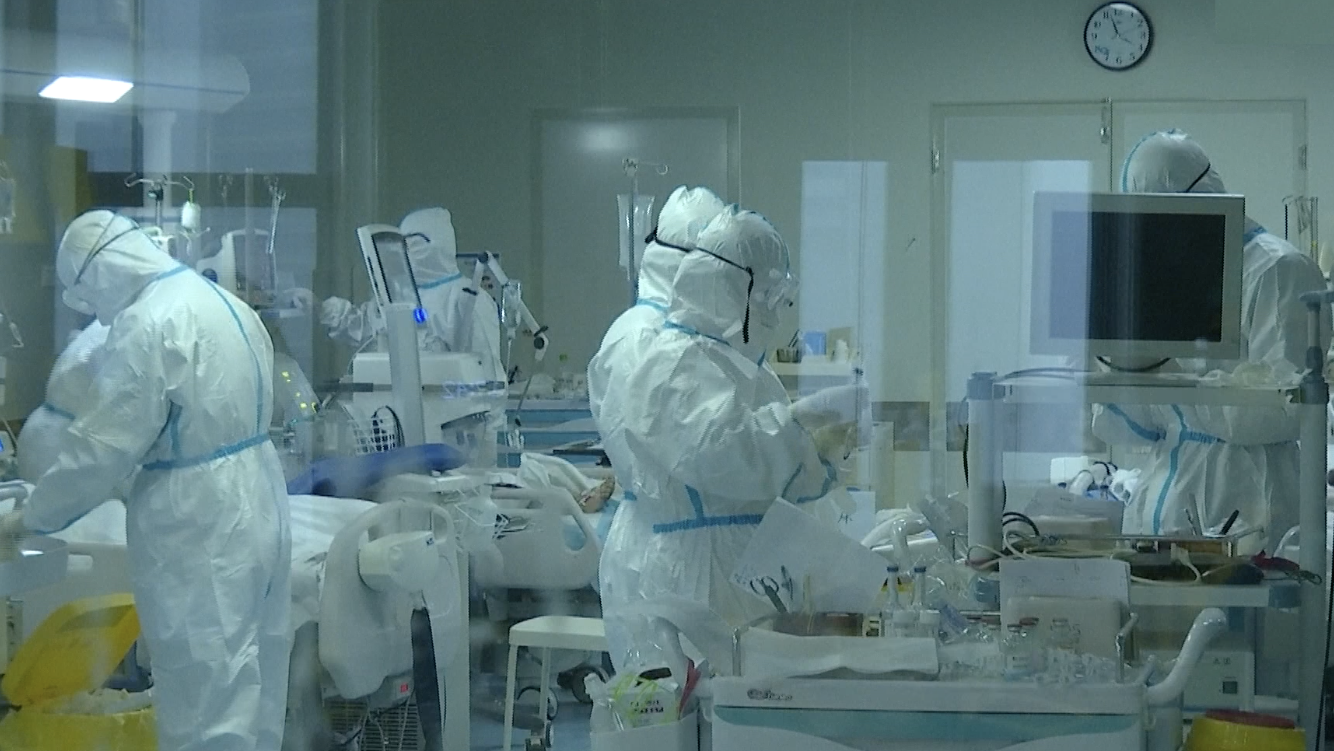
(Photo: CGTN)
An academician with the Chinese Academy of Engineering, and director of the State Key Laboratory for Diagnosis and Treatment of Infectious Diseases, provided suggestions on preventing and controlling pneumonia caused by the novel coronavirus (2019-nCoV) on Saturday in Beijing.
During an exclusive interview with China Central Television, Li Lanjuan, the expert, answered some frequently asked questions on viral pneumonia.
"It's basically clear now that respiratory transmission has been confirmed, and whether there is transmitted through blood, feces and contaminated items is yet to be confirmed," said Li.
According to Li, the incubation period of a virus is up to 14 days, and she said that it is possible to infect others during the period.
"I have been doing the investigation on it and found that it can be transmitted to others during the incubation period. So within the 14 days after contacting the source of illness, people should be under medical observation and relative isolation," said Li.
Speaking of how to distinguish a common cold from pneumonia caused by the new coronavirus, Li said it is better to have a test in the hospital.
"The early symptoms are very similar, including fever, dry cough and respiratory symptoms. After the fever, the infected people would feel fatigue, and even have some gastrointestinal symptoms. So the most important thing for us to identify is to take a throat swab and test for the virus. Now the technology is very advanced, as it can report whether you are infected with influenza A or B or the new coronavirus. It is very clear. All hospitals are able to test for influenza viruses. Now the new coronavirus reagents are available in designated hospitals," said Li.
Recently, there is a report that a doctor infected with pneumonia treated himself at home and recovered. When talking about whether we should isolate ourselves and receive treatment at home, Li also gave her advice.
"Just recently, a doctor reported that he was completely cured after self-intervention therapy at home, and I think there is some truth in his suggestion. However, it's safer to stay in the hospital considering medical conditions, because we can have chest scanning to see whether the patients' condition worsened. He is a doctor himself and he is not afraid. He knew that his condition would not get worse and that he would rest better, eat better, and recover better at home. If you are not a medical worker, do not know your condition, and the inflammation in your lungs develops quickly, you should still be treated in the hospital," said Li.


